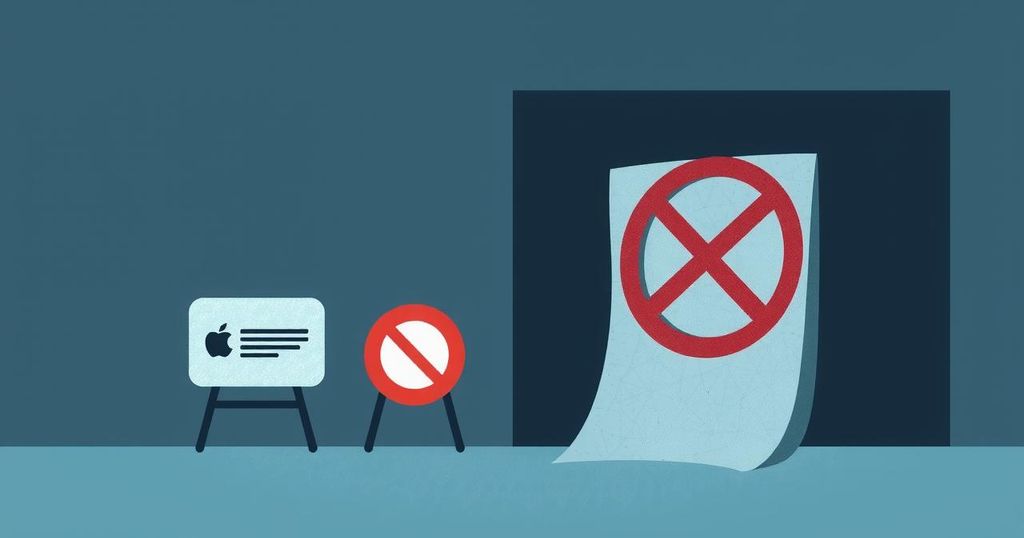Elon Musk Faces Backlash Over X’s Compliance with Turkish Censorship Requests

Elon Musk faced backlash after social media platform X complied with Turkey’s censorship requests, blocking 126 accounts including major journalists and media outlets. The compliance, mainly targeting Gulenist, pro-Kurdish, and left-wing profiles, raises fears about freedom of expression in Turkey amid a crackdown on journalists. Musk has increased compliance with government removal requests since acquiring X.
Elon Musk has faced criticism after the social media platform X, which he owns, complied with a Turkish government request to block 126 accounts, including several prominent journalists and news organizations. This decision, made by a criminal court in Ankara on February 5, cited concerns regarding “national security and public order.” Affected accounts are primarily linked to the Gulenist movement, pro-Kurdish groups, and left-wing organizations.
Blocked outlets include notable names like the left-leaning Arti Gercek, Yeni Yasam, and the pro-Kurdish Mezopotamya News Agency. Prominent journalists, such as Berlin-based Hayko Bagdat, who has over a million followers, and independent journalist Metin Cihan, have also been restricted. Bagdat highlighted that Musk’s actions enable authoritarianism, which he argues is troubling for global freedom of expression.
Bagdat expressed his dismay at losing access despite his substantial following and long-standing presence on X. He emphasized the importance of discussing freedom of expression, especially in light of Musk’s influence. Since Musk took over in 2022, X has seen a significant rise in compliance with government removal requests, acting on 71% of legal requests in early 2024, which marks a 20% increase from 2021.
Notably, X acted on 68% of the requests from Turkey, handling over 9,300 removal requests in the first half of 2024. IFOD founder Yaman Akdeniz criticized Musk’s management, stating that X has shifted from resisting censorship orders to complying with them, which undermines free speech.
Turkey has a history of suppressing journalists, being labeled as the worst jailer of journalists by media freedom organizations. A recent report indicated there are currently 30 journalists imprisoned and ongoing trials involving hundreds of defendants. After the 2016 coup attempt, attacks on journalists intensified, driving concerns over press freedom further north, particularly amid escalating tensions in Syria and campaigns against Kurdish groups.
Bagdat condemned the actions of the Erdogan regime, noting that these judicial and press pressures aim to silence democratic voices consistently. He also pointed out the dire situation of journalists in Turkey, exacerbated by conflicts and political repression.
Elon Musk’s compliance with Turkish censorship requests through the platform X has raised significant concerns regarding freedom of expression. With the blocking of numerous accounts linked to journalists and media outlets opposing the government, the action reflects a troubling trend of increased governmental control over social media. Amid ongoing imprisonment and trials of journalists in Turkey, critics argue that such compliance threatens the very foundation of free speech and democratic discourse.
Original Source: www.middleeasteye.net







